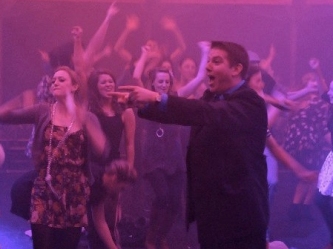Once again the Greenwich Theatre panto fires a confetti cannon of fun into the audience. ‘Robin Hood’ is this year’s offering and, if you’ve seen the recent run of Christmas successes before, the tried and trusted formula will work its magic again; if it’s your first time (and there were plenty of those in Saturday night’s audience) then you too might be bowled over by this confident and self-assured show.
The Master of the Revels is the overworked Andrew Pollard as writer, actor and director. He is genuinely The Lord of Misrule as we are made to laugh at things that under any other circumstances would be very unfunny indeed – it’s best not to enquire how or why the jokes work, they just do.
Andrew Pollard has gathered together a team that absolutely holds the confidence of the audience – the ensemble is the artistic equivalent of a safe pair of hands. This means we can sit back in our seats and simply let the waves of jokes, dance and improvised humour wash over us. It’s not a lavish show, but everything is well tailored to create a good hearted colourful spectacle and this year’s production does have added visual sparkle.
Chris Wither’s energetic lighting design adds much in its use of X-factor style moving lights as they zip from Sherwood Forest to Nottingham Castle while illuminating and dazzling the audience.
Andrew Pollard’s Nurse Germoline, gives any pantomime dame in the country a run for his – or her – money. Smutty, outrageously attired and adorable, the ‘Naughty Nursey’ thrives when chatting up the audience and finding a suitable victim. In our case Dave, a scout leader from East Grinstead, was the object of the Dame’s attention – well, what do you expect when you literally bring your own braying pack along with you?
Anthony Spargo returns to Greenwich as a wonderfully evil Sheriff of Nottingham with a vulture side-kick. The addition of ventriloquism this year was a master stroke – I didn’t even see his beak move. He looked and sounded like a seedy, long-legged Richard Branson.
Garry Ellis plays a lively Alan McDale the Camp Balladeer (get it?) who oddly ends up falling in love with the evil, but gorgeous, Consuela – don’t bother to work it out, just go with the flow. All the cast buy into this wonderful nonsense and so too do the audience. Adults and children were on their feet well before the traditional sing-song at the end and the audience richly endorsed the stupidity on the stage.
Gone are last year’s banker jokes, Pollard knows when he’s flogged a dead pantomime horse, so this year Olympic equestrian jokes are given a good trot around the stage. The writing is always well researched and locally topical, although I’m pretty certain there is no factual basis for the Dancing Druids of Deptford – it would be nice if there was.
Musically the show is as wide ranging as ever, shifting from Rule Britannia to Gangnam style within in the blink of a crotchet. Musical Director, Steve Marwick, otherwise known to us all as Uncle Steve, controls his cast with a baton of iron, producing rock solid numbers for both soloists and dancers.
The addition of elements of real stage magic, including levitation, kept the audience on its toes and the cast never left us a moment to question the glorious silliness of the plot. ‘Robin Hood’ is simply rollicking good fun and it hits the pantomime bullseye. Forget 5 stars, let’s just put one huge star on on top of Greenwich Theatre’s panto tree!


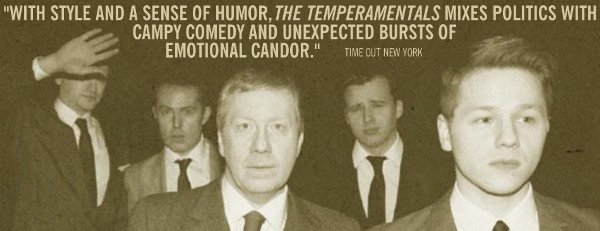

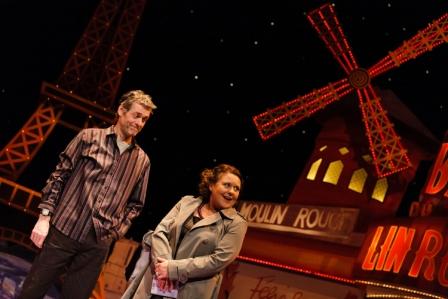
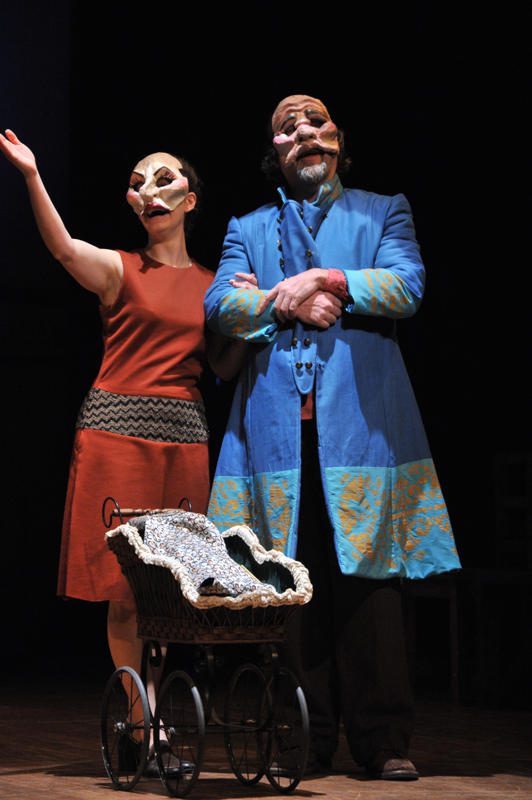 The playwright Brecht’s artistic vision was to address issues of huge significance and confront the audience with them – in short, to make the audience think. Blackeyed Theatre’s production of The Caucasian Chalk Circle, currently running at Greenwich theatre, does fulfil this aim successfully and in doing so marries the play’s historical setting with current affairs. Director, Tom Neill, begins by confronting the audience with an energetic debate as villagers aggressively invade the auditorium to argue about land ownership shouting over the audience’s heads; from then on we know we’re going to have to sit up and pay attention. In this moment the ensemble convey successfully the tensions of all land disputes from the neighbour’s fence to the problems in the Middle East. This level of topicality is sustained throughout the evening and the story resonates with the big issues of the day on many levels. Images of today’s politicians, protests and riots are projected onto the walls of the set. I found this quite effective, but at times lost track the thread of the visual argument.
The playwright Brecht’s artistic vision was to address issues of huge significance and confront the audience with them – in short, to make the audience think. Blackeyed Theatre’s production of The Caucasian Chalk Circle, currently running at Greenwich theatre, does fulfil this aim successfully and in doing so marries the play’s historical setting with current affairs. Director, Tom Neill, begins by confronting the audience with an energetic debate as villagers aggressively invade the auditorium to argue about land ownership shouting over the audience’s heads; from then on we know we’re going to have to sit up and pay attention. In this moment the ensemble convey successfully the tensions of all land disputes from the neighbour’s fence to the problems in the Middle East. This level of topicality is sustained throughout the evening and the story resonates with the big issues of the day on many levels. Images of today’s politicians, protests and riots are projected onto the walls of the set. I found this quite effective, but at times lost track the thread of the visual argument.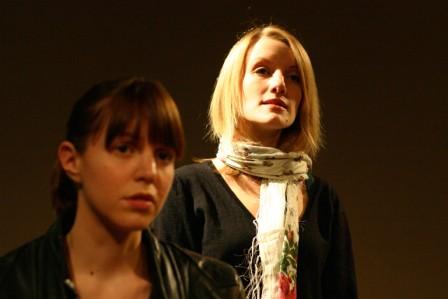
 ‘Emotionally searing’ The Laramie Project talked to 200 townspeople following Matthew Shepard’s torture and murder in 1998.
‘Emotionally searing’ The Laramie Project talked to 200 townspeople following Matthew Shepard’s torture and murder in 1998.